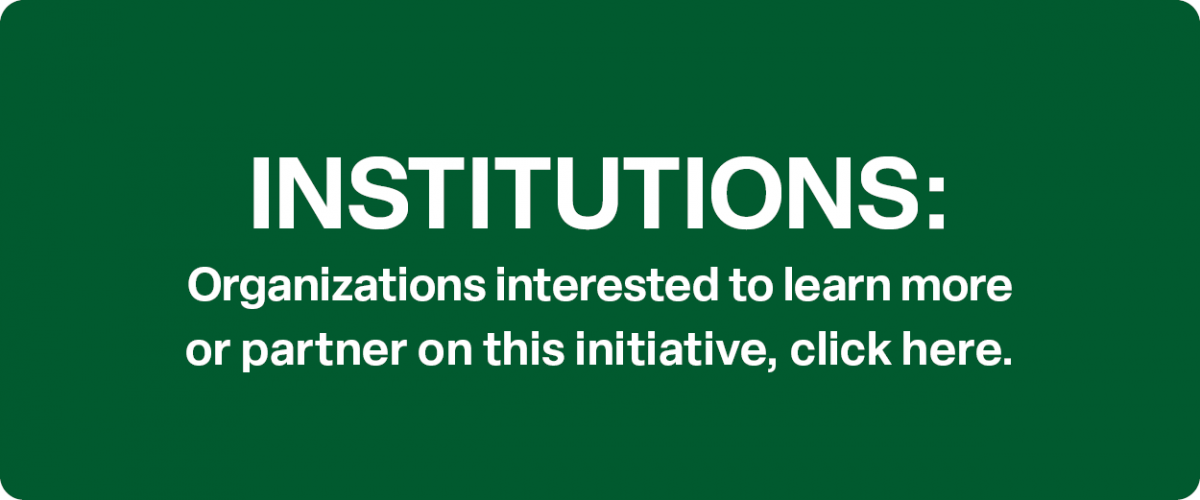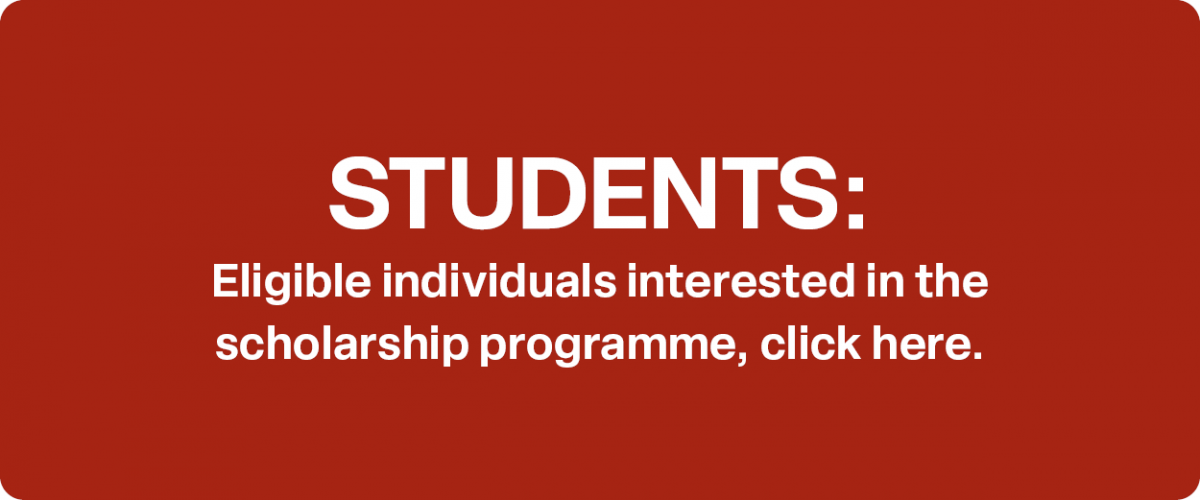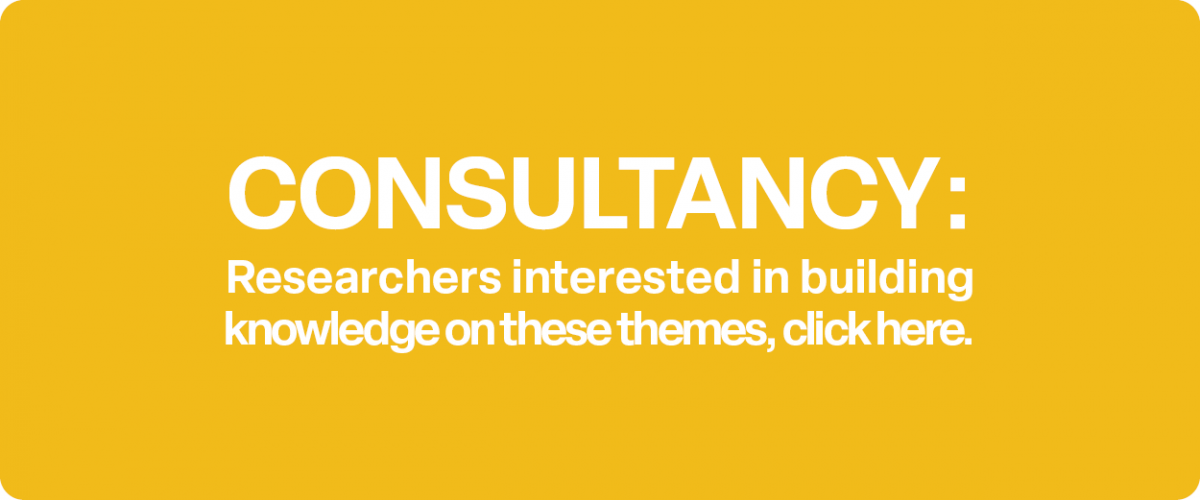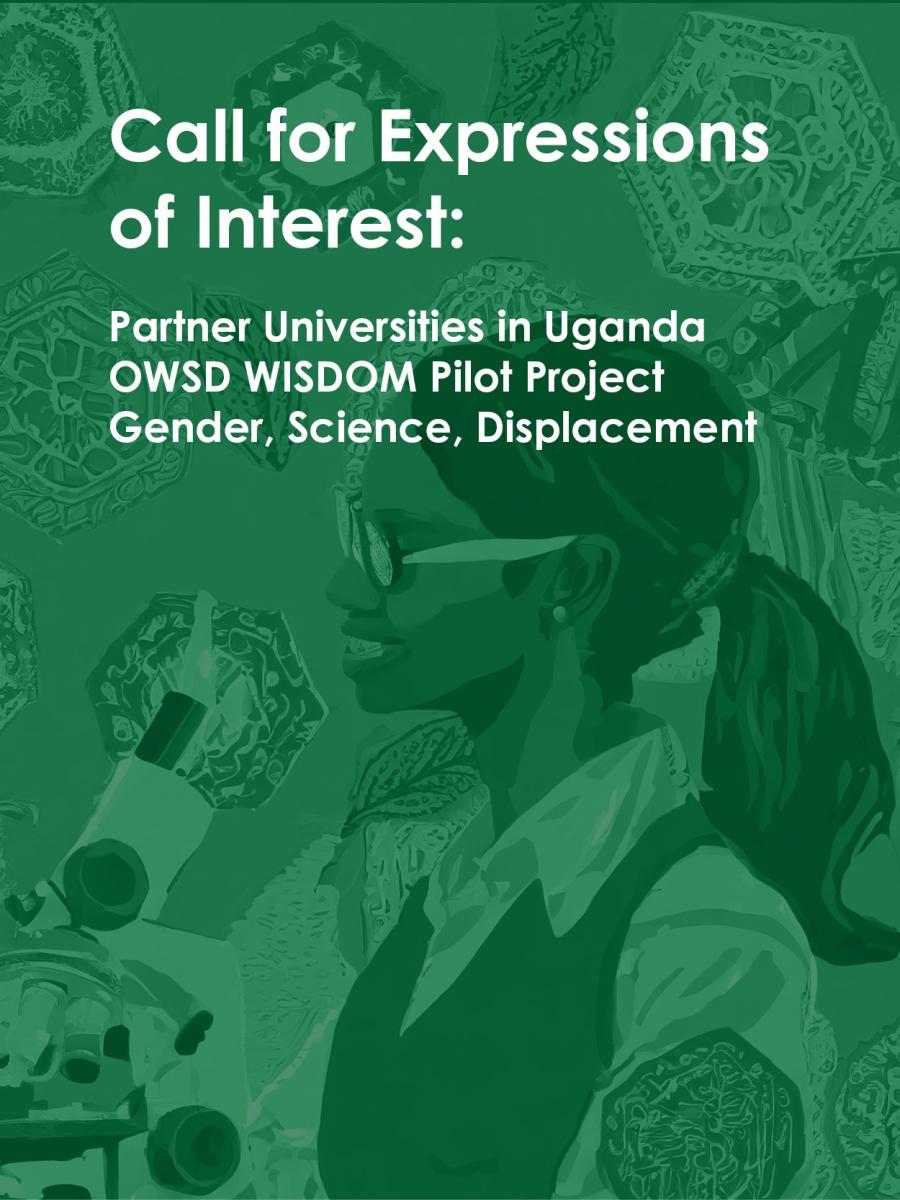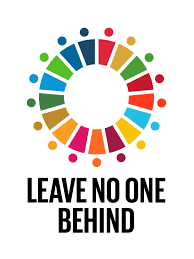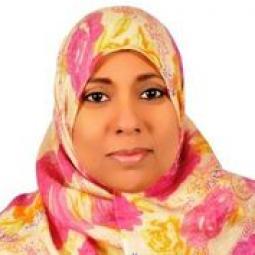WISDOM Master's Scholarship
A new fellowship for displaced women scientists launching in 2024
There are several ways to get involved with OWSD's exciting new work on Gender, Displacement, and Science.
For the past 30 years OWSD has been supporting women in science across countries such as Sudan, Ethiopia, Myanmar, and Afghanistan with programmes such as PhD Fellowships, to name one example.
OWSD knows well that many women who are refugees or displaced have fallen through the cracks. Because of this, this new initiative has the objective of 'Leaving No One Behind' (LNOB), the central, transformative promise of the 2030 Agenda for Sustainable Development and the Sustainable Development Goals (SDGs).
With generous financial support from Sida, and assistance from UNHCR, OWSD is launching a new Masters Scholarship Programme to support displaced and refugee women wishing to pursue a Masters of Science in STEM fields in countries such as Jordan. The new OWSD Masters Scholarship scheme will initially provide around 25 comprehensive scholarship packages to women for up to 24 months’ study. The project will also focus on capacity building, working with selected institutes on gender-sensitive policies and raising awareness around protection needs.
Upon UNHCR’s invitation OWSD is pleased to present its public pledge at the Global Refugee Forum in Geneva, in December 2023.
The Women in Science Displacement Outreach Master's Program (OWSD WISDOM) is a pilot project that aims to provide scholarships to displaced women to pursue master's degree programmes at high-quality universities in the Global South, in partnership with the United Nations Refugee Agency UNHCR.
To be eligible, selected candidates must hold refugee or asylum seeker official status, be under 35 years of age, hold a bachelor's degree, and be a national of an eligible country. The selection process will involve targeted outreach to DAFI (Albert Einstein German Academic Refugee Initiative) scholarship graduates and other displaced women in target countries. Support will be provided by OWSD National Chapters and national UNHCR offices, while shortlisting and review of candidates will be undertaken by a Selection Committee established by OWSD, UNHCR, and the selected host institute. More information will follow in the Call for Applications in early 2024.
With this new programme OWSD commits to promoting equitable and sustainable inclusion of displaced women scientists in national education systems.
We know for a fact that there are so many qualified women who are displaced and could pursue a master's if funding was available.
More information
The UNHCR Refugee Education Strategy 2030, in line with the Global Compact on Refugees, calls on states and relevant stakeholders to contribute resources and expertise to expand and enhance the quality and inclusiveness of national education systems to facilitate access to education by refugees.
OWSD puts forward this pilot project (OWSD WISDOM) to support provision of inclusive and equitable quality education to displaced women in science to ensure a contribution towards achievement of the 2030 Agenda's Sustainable Development Goals (SDG).
Leveraging the growing global momentum, UNHCR is working to translate the objectives of the Global Compact on Refugees (GCR) into impactful results. OWSD wishes to respond to this challenge and work with well trusted universities, UNHCR, GAIN, and specific UNHCR Country Office(s) and partners to advocate for and implement the objectives of Refugee Education 2030 via this pilot project, OWSD WISDOM.
The main objectives of the OWSD WISDOM pilot project are:
- Promoting equitable and sustainable inclusion in national education systems for women who are refugees or asylum seekers with a human rights-based approach in mind.
- Foster safe enabling environments that support learning by working with host institutes on protection and gender transformative awareness raising.
- Enable displaced women to use their education toward sustainable futures.
In line with GRF guidelines, since its early stages this project has been developed by consulting with individuals with lived experience of displacement. The project proposed support towards refugees and affected communities and puts gender at its core.

